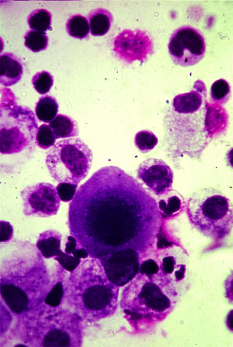Locals join deep dive on cells
 Australia’s top biomedical institutions are joining forces as part of an ambitious global initiative to create an ‘instruction manual for life itself.’
Australia’s top biomedical institutions are joining forces as part of an ambitious global initiative to create an ‘instruction manual for life itself.’
Similar to the Human Genome Project, which catalogued the first full human DNA sequence and has since seen many medical success stories, The Human Cell Atlas seeks to propel translational discoveries and applications for a new era of personalised and regenerative medicine.
Helping to lead Australia’s involvement is Dr Shalin Naik, a member of the Human Cell Atlas organising committee and cellular biologist at the Walter and Eliza Hall Institute of Medical Research.
Dr Naik says knowledge of cells is surprisingly limited.
“The project is significant because the more we learn about cells – their different types, functions and how they interact with one another across different organs and tissues, in different people and across populations – the more we will understand about health and what might be going wrong in cases of disease,” Dr Naik said.
Dr Naik said crucial advances in single cell sequencing and spatial technologies over the past few years mean scientists now have the tools they need.
“Biologists have been studying different cell types for more than a century but we still don’t know the full picture because we’ve been limited by technology.
“We're now living in an unprecedented scientific era where the identity of each cell can be mapped with new technologies such as single cell RNA sequencing.
“At the Institute, we have leading expertise in generating information about cells using the single cell RNA sequencing technique.
"We also have world-leading bioinformaticians to analyse and interpret the masses of information or ‘big data’ resulting from these studies,” Dr Naik said.
Clinical genomics expert Dr Joseph Powell from the University of Queensland said the Human Cell Atlas could be a real ‘game-changer’, just like the Human Genome Project.
“The Human Genome Project led to the discovery of more than 1900 disease genes. Today’s researchers can find a gene suspected of causing an inherited disease in a matter of days, rather than years.
"In Australia alone, there are now more than 1700 genetic tests for human conditions, enabling patients to learn their genetic risks for disease.
“The Human Cell Atlas holds similarly exciting potential for health. It could help to create a map for predicting disease, even before symptoms are observed or detected,” Dr Powell said.
The co-chairs of the Human Cell Atlas organising committee are Dr Aviv Regev from the Broad Institute of MIT and Harvard, US, and Dr Sarah Teichmann from the Wellcome Trust Sanger Institute, UK.
“The Human Cell Atlas strives to be open, equitable and collaborative across the globe,” Dr Regev said. Dr Teichman added, “we are excited to see Australian biomedical researchers coordinating and joining this effort.”








 Print
Print